Tools:
- Calipers
- Ratchet wrench
- Torx socket T30 (if required)
- Socket 19 mm (if necessary)
- Straight box wrench 15 mm (if necessary)
- Straight ring wrench 13 mm (if necessary)
- balloon wrench
- Large flat screwdriver
- Brake caliper piston press tool (or wrench with suitable paws for piston grooves) (if necessary)
- screw jack
- Support legs
- Stops under the wheels "shoes"
- Metal brush
Parts and consumables :
- Hose (if needed)
- Syringe (if needed)
- rags
- Protective covers for guide pins (if required)
- Front wheel brake pads A 000 421 61 10 (if necessary)
- Brake shoe retainers A 001 421 06 91 (if required)
- Brake fluid (DOT-4 plus type) (if required)
- Lubricant for caliper guides (if necessary)
- Aerosol lubricant WD-40 or equivalent (if needed)
- High Temperature Copper Spray Lubricant (P/N 30006) (if required)
- Front wheel brake disc (A 639 421 00 12) (if required)
- Rear wheel brake disc (A 639 423 01 12) (if required)
- Brake disc fixing screw to front wheel hub (A 220 421 01 71) (if required)
- Brake disc fixing screw to rear wheel hub (A 220 421 01 71) (if required)
Checking the front and rear brake pads:
WARNING:
If the vehicle pulls to one side or a strange noise is heard when braking, check the condition of the brake pads.
Note:
Brake pad wear limit: 3.5 mm. If during the initial check the pad thickness is found to be insufficient, the thickness of all pads should be checked and replaced if necessary. The process of removing and replacing the front pads is described in this article . The process of removing and replacing the rear pads is described in this article .
The car has a brake pad wear sensor. When the pads are worn out, there will be a special notice on the instrument panel to replace the brake pads.
To prevent the need to replace the pads by surprise, do not wait for the wear indicator to go off. Before a long trip or when changing wheels, visually check the wear of the brake pads and discs.
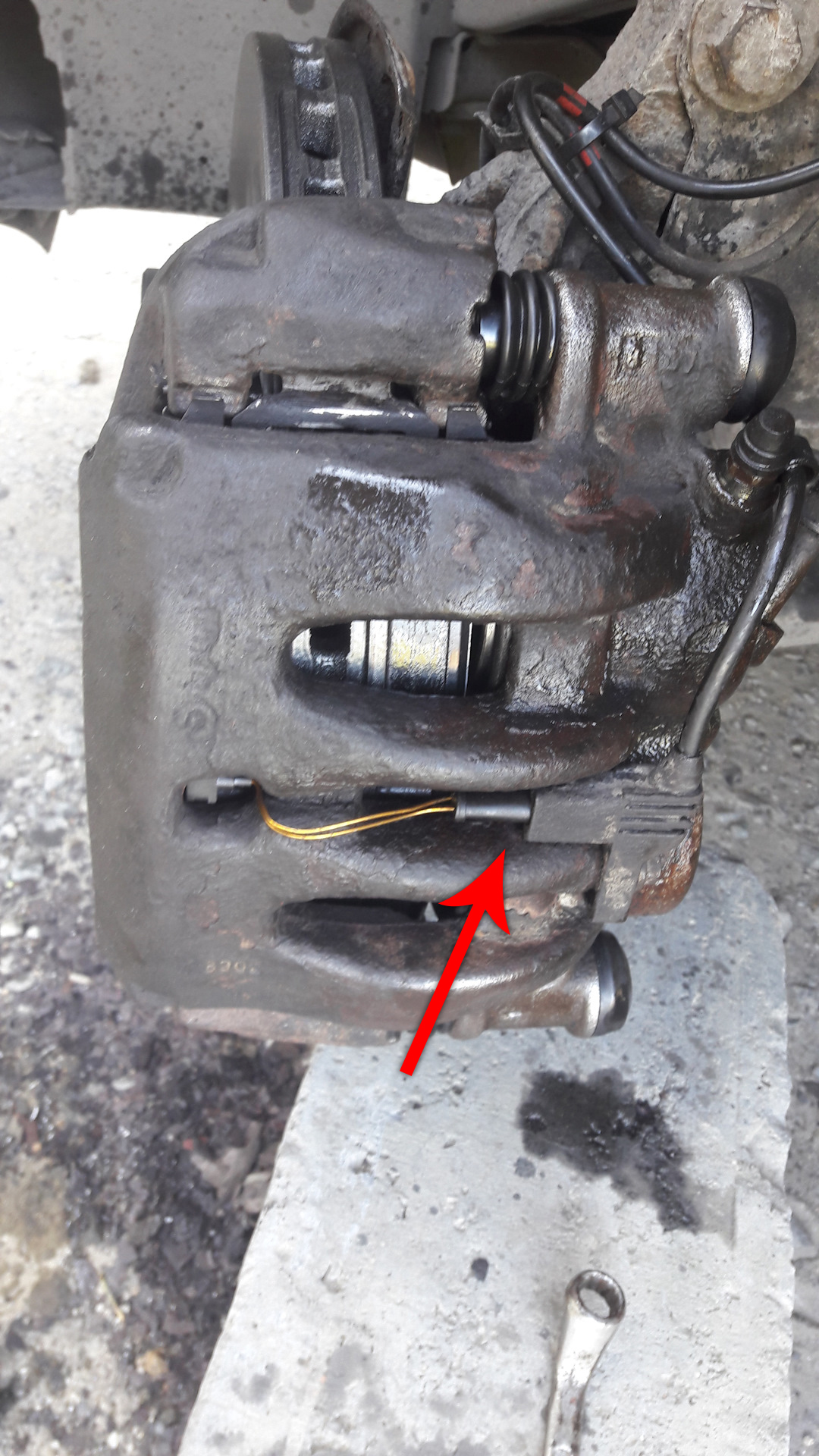
Brake pad wear sensor
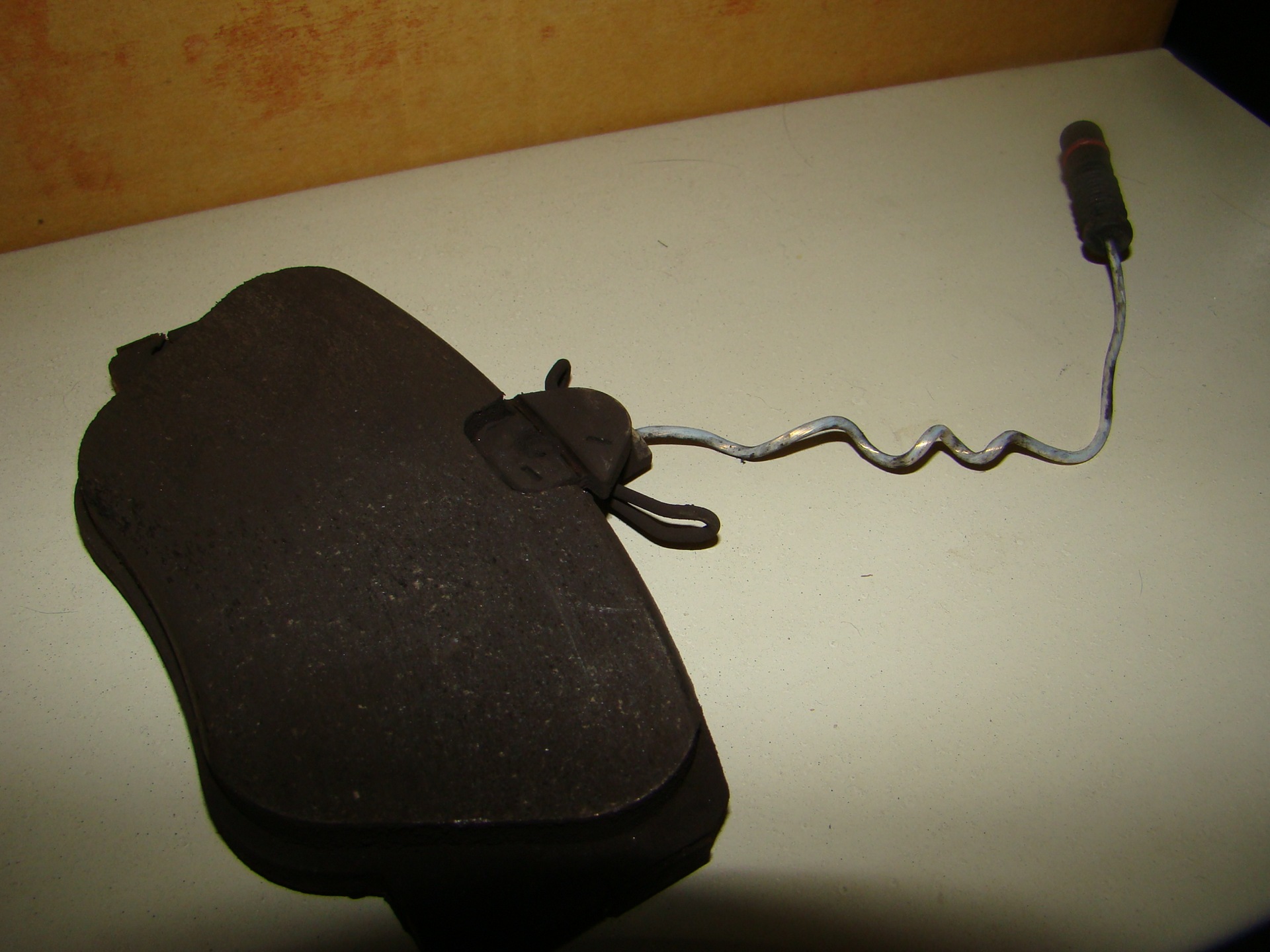
Brake pads Mercedes Vito with wear indicator
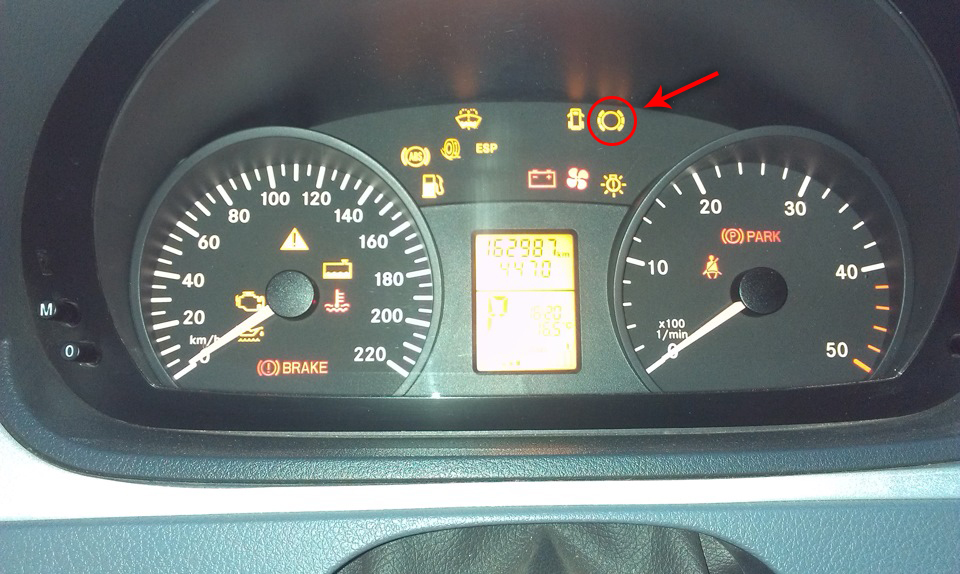
Brake pad wear indicator on dashboard
1. To check the condition of the brake mechanisms of the front wheels, brake the car with a parking brake and install wheel chocks (“boots”) under the rear wheels.
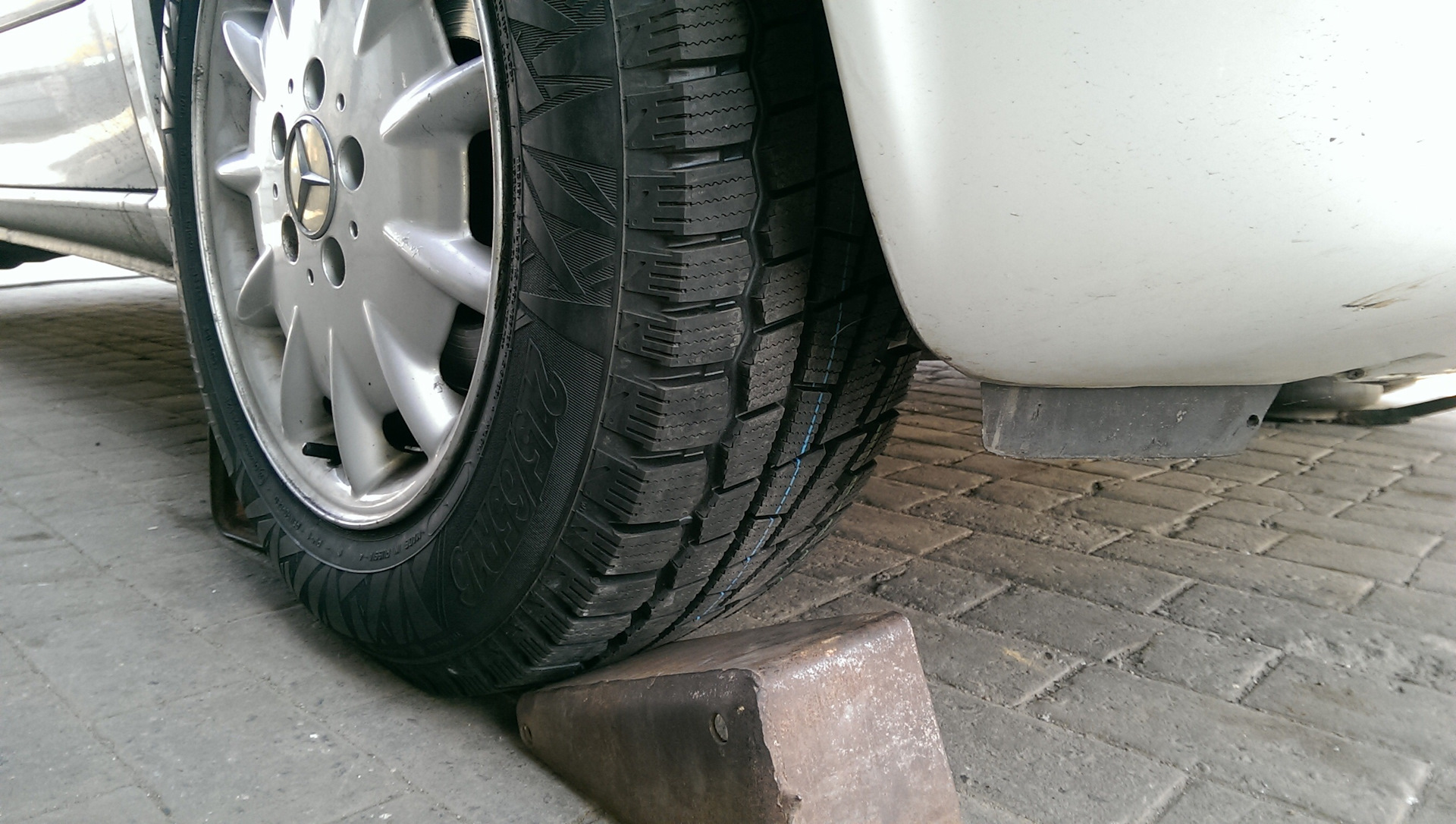
2. Loosen the wheel nuts, raise the front of the vehicle with a jack, secure the vehicle on jack stands, and remove the wheel.
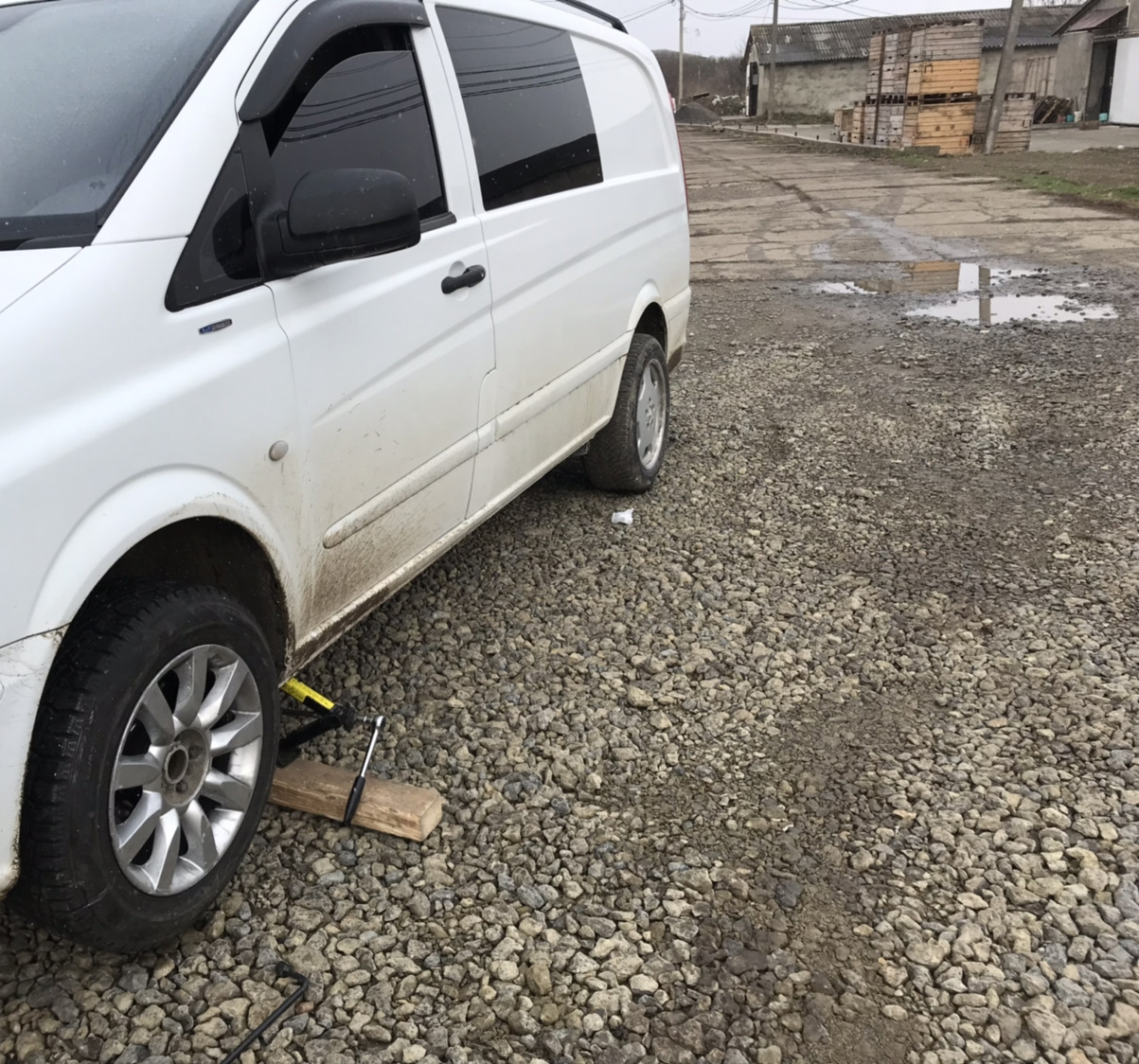
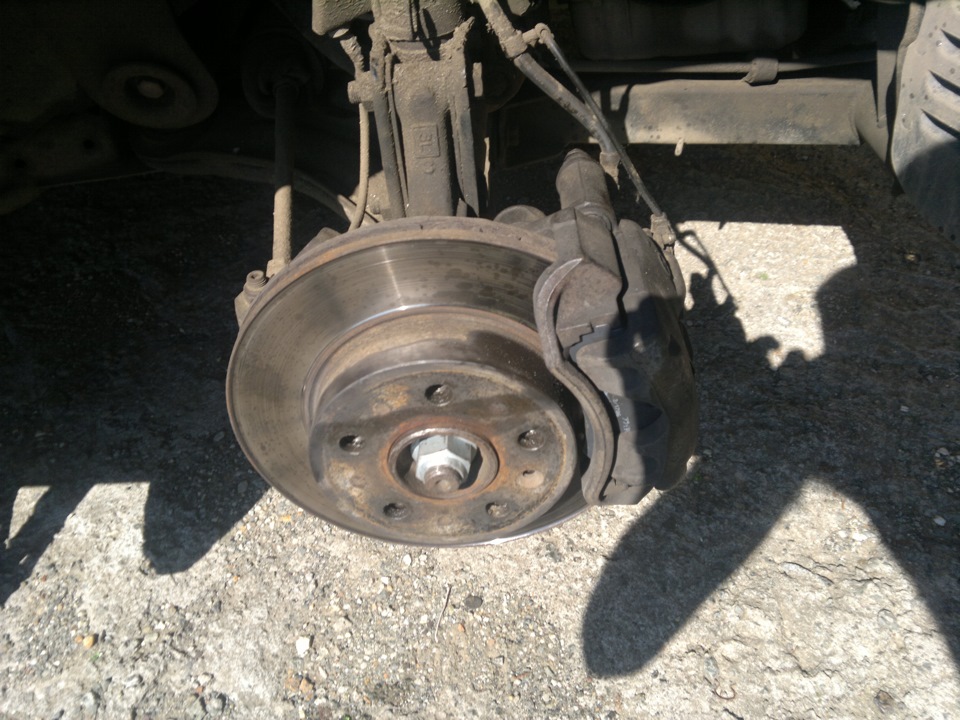
WARNING:
Loosen and tighten the wheel nuts only with the vehicle on the ground.
3. Check the condition of the brake pads of the front wheels through the hole in the caliper housing. Visually check the condition of the brake disc, the minimum value of the brake disc is 25 mm.
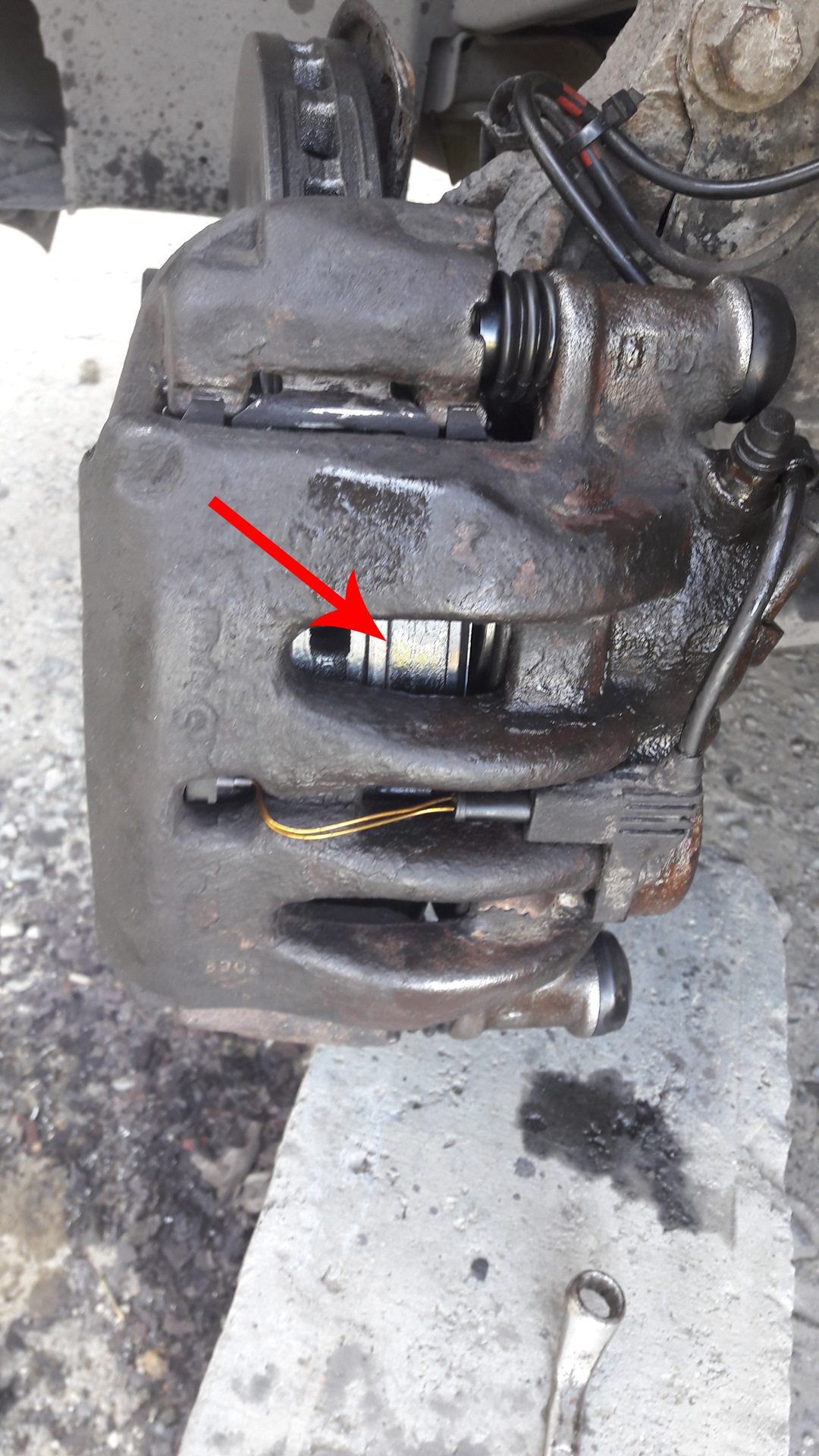
Note:
Only the thickness of the friction lining is measured (for clarity, it is shown on the removed block). The thickness of the metal plate of the shoe base is not taken into account during the measurement. If the thickness of the friction linings is less than 3.5 mm, replace the brake pads. Replacing the brake pads Mercedes Vito is described in this article .
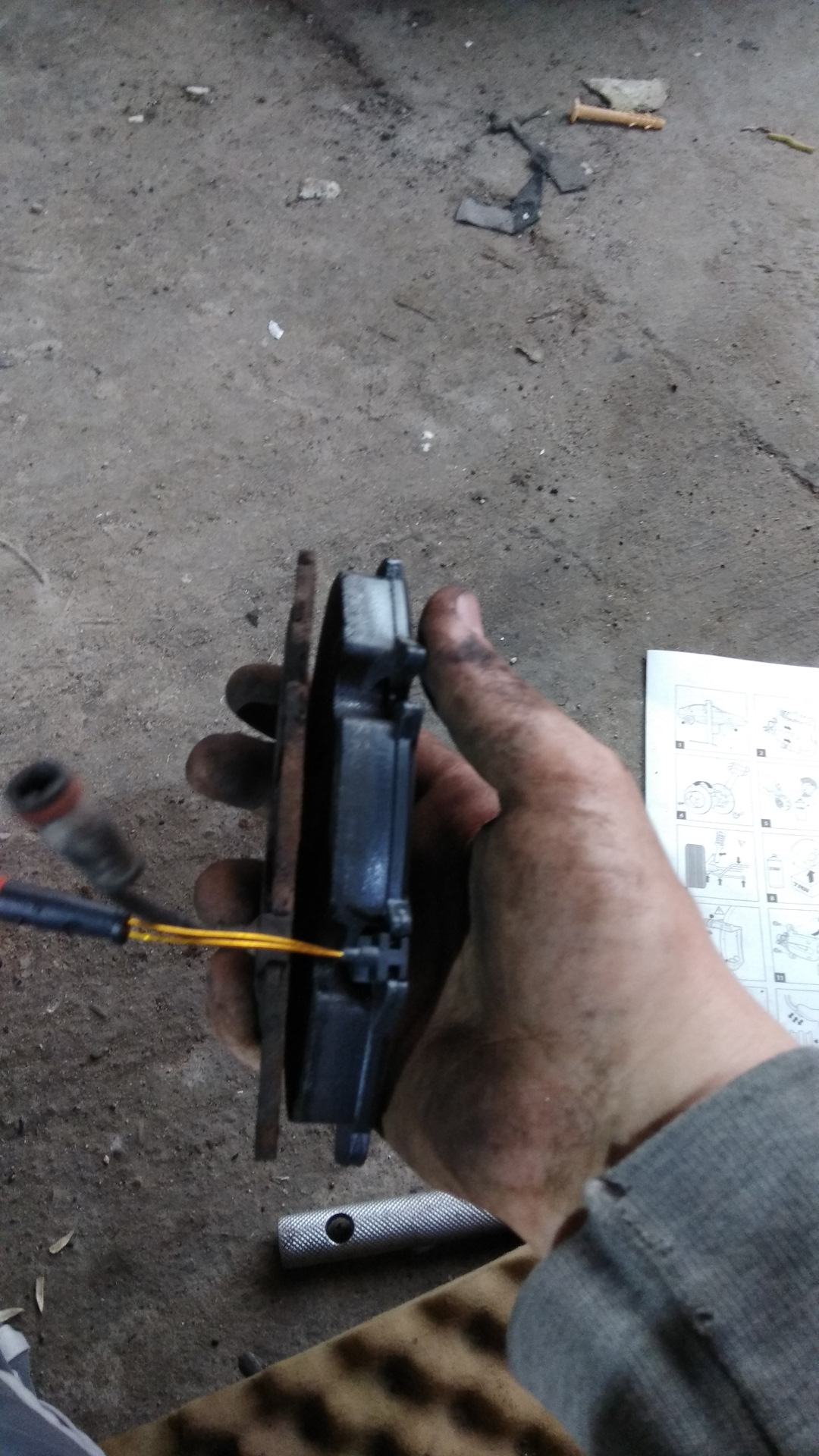
Comparison of old and new brake pad
4. Inspect the brake hoses for damage (cracks, splits, fluid leakage). In the presence of defects brake hoses should be replaced.
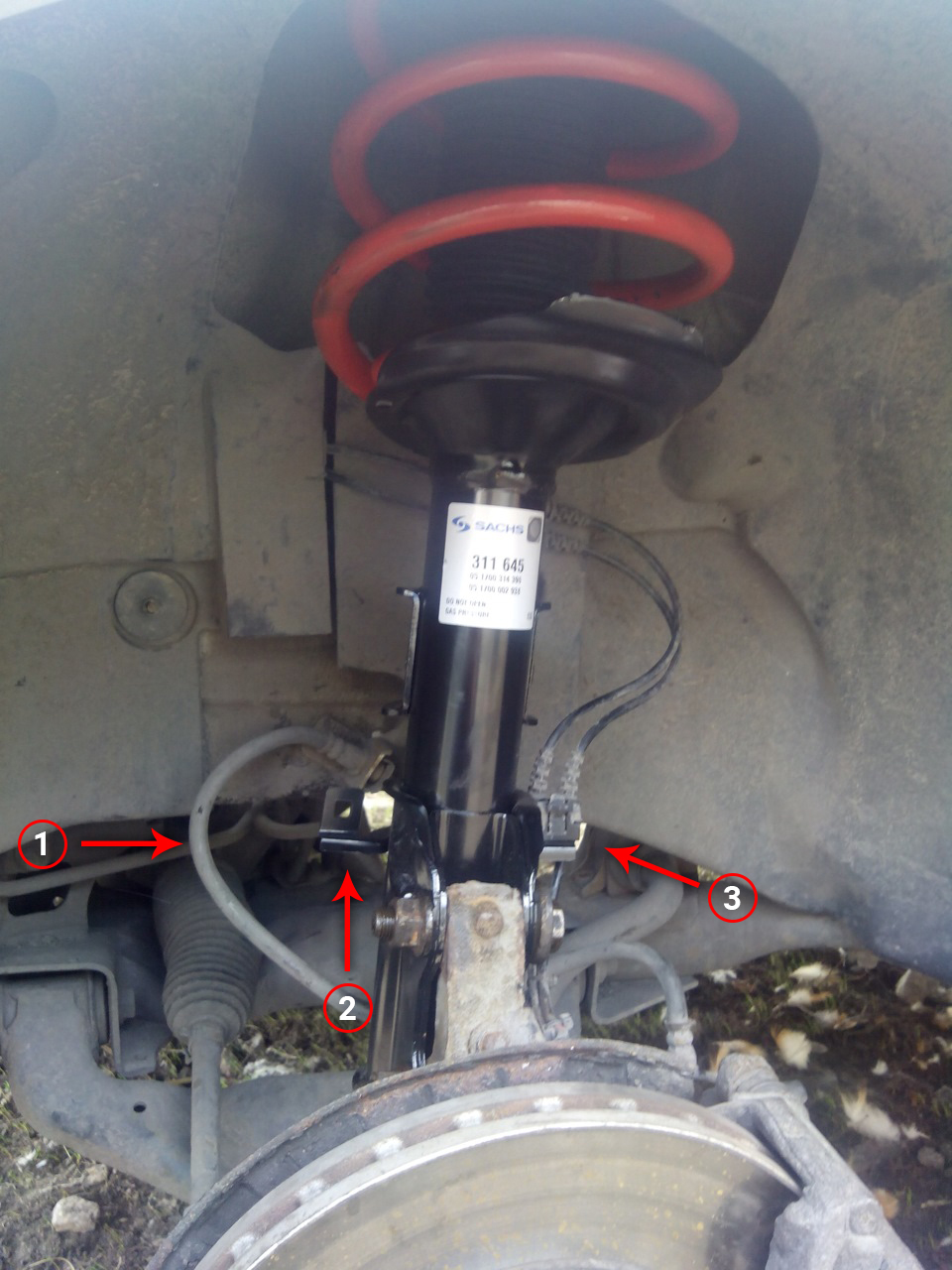
1 - Brake hose.
2 - The seat of the brake hose.
3 - Brake and ABS sensor.
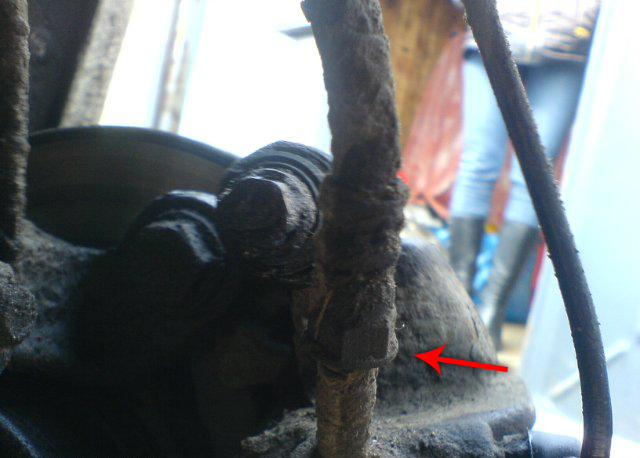
Attaching the brake hose to the caliper
5. Press the piston of the brake cylinder inward, if the piston sticks when pressed in, replace the floating caliper assembly.
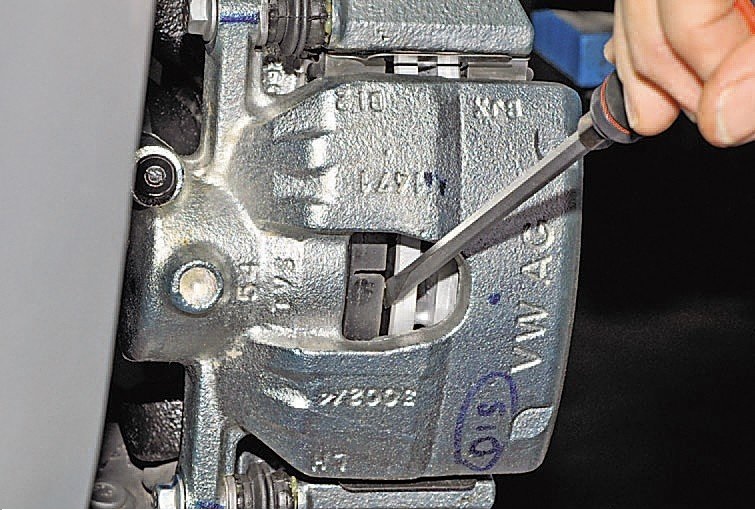
Note:
Removing and replacing the caliper bracket is described in this article .
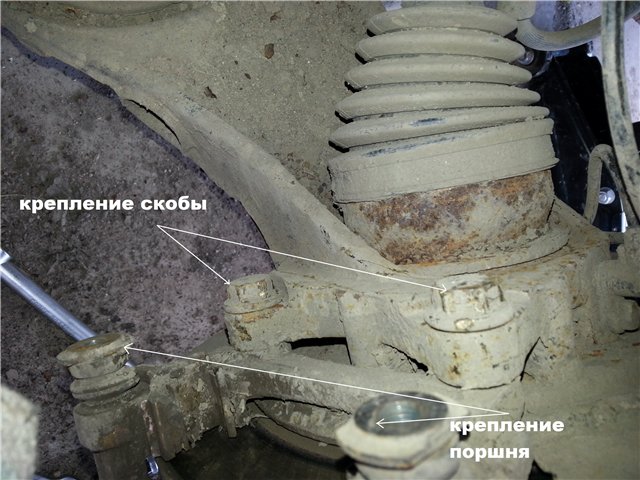
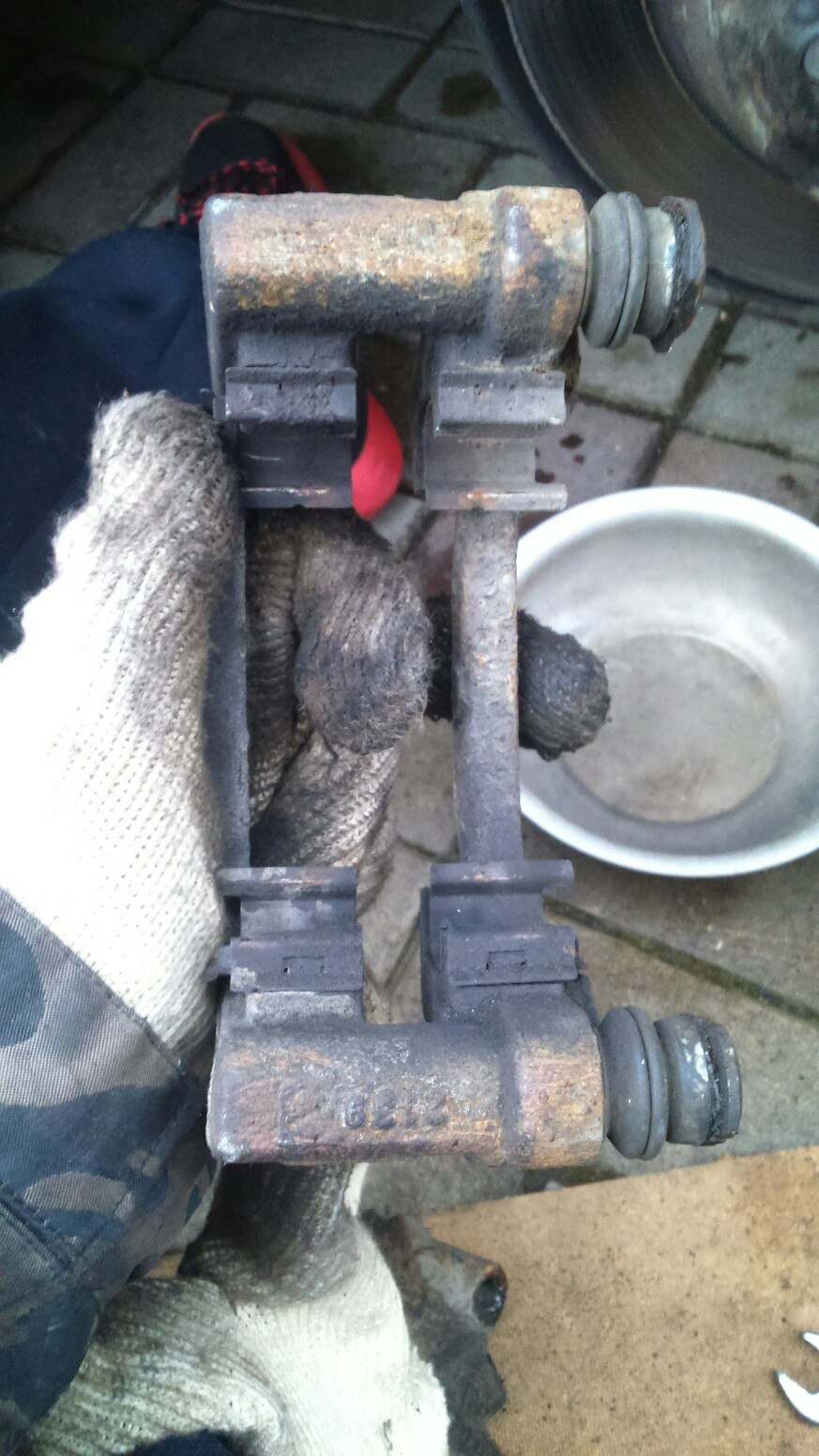
caliper bracket
6. Install all removed parts in the reverse order of removal.
Checking the front brake discs:
1. To check the condition of the brake mechanisms of the front wheels, brake the car with a parking brake and install wheel chocks (“boots”) under the rear wheels.
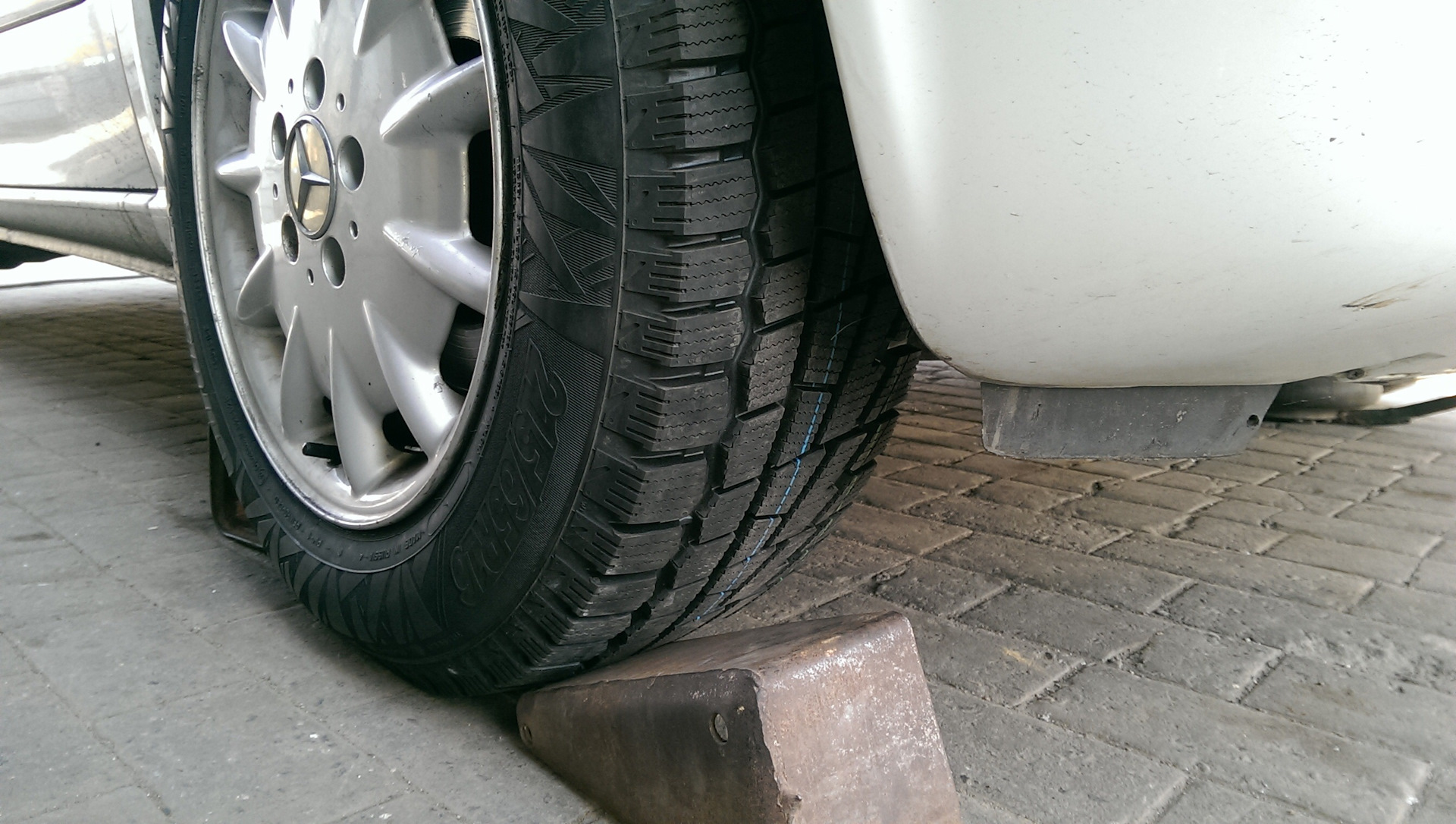
2. Loosen the wheel nuts, raise the front of the vehicle with a jack, secure the vehicle on jack stands, and remove the wheel.
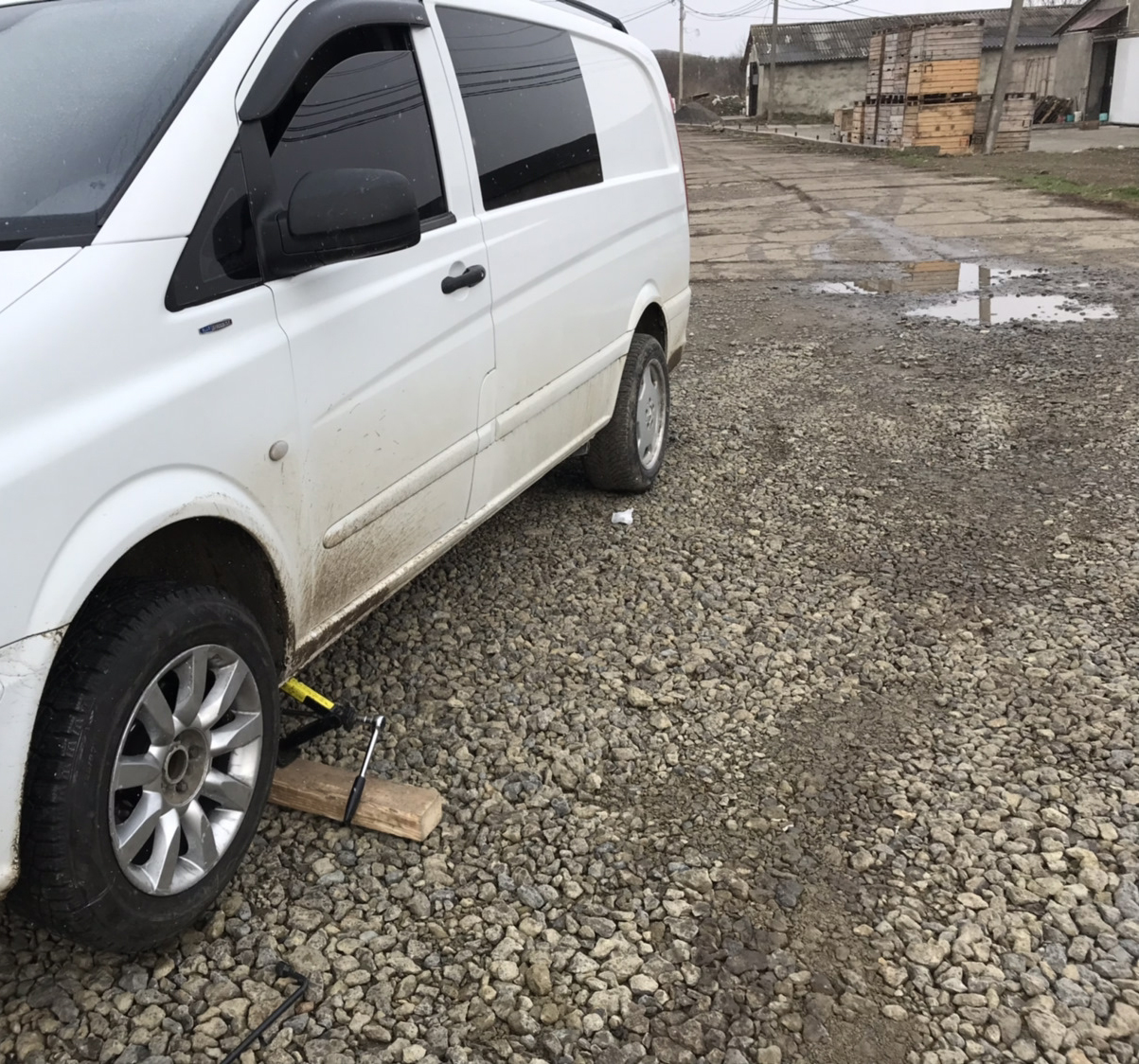
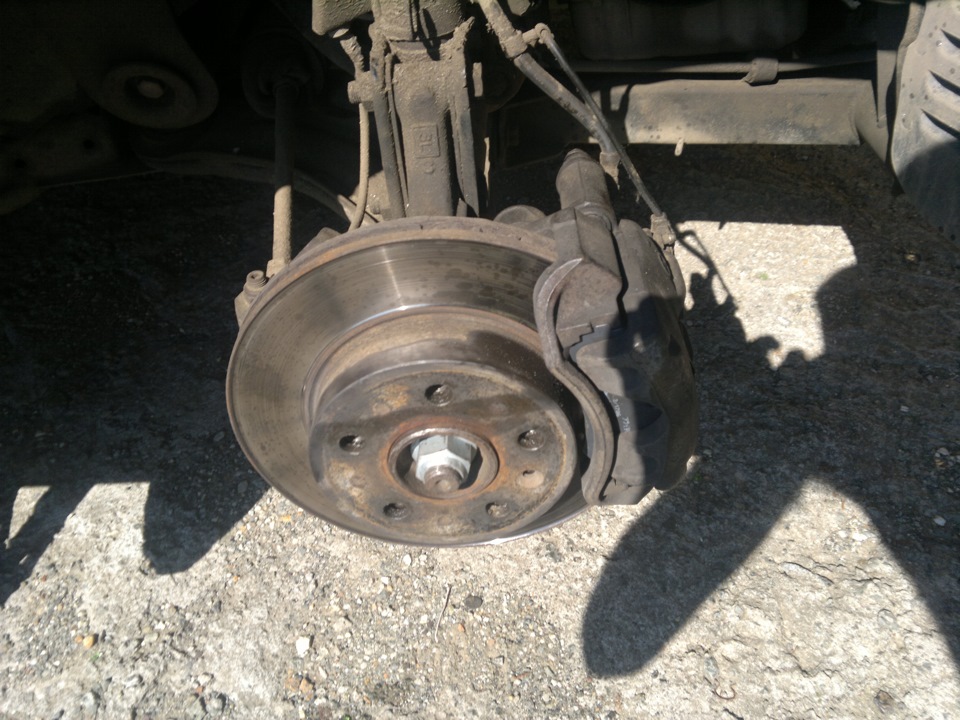
WARNING:
Loosen and tighten the wheel nuts only with the vehicle on the ground.
3. Visually check the condition of the brake disc, the minimum value of the brake disc is 25 mm.
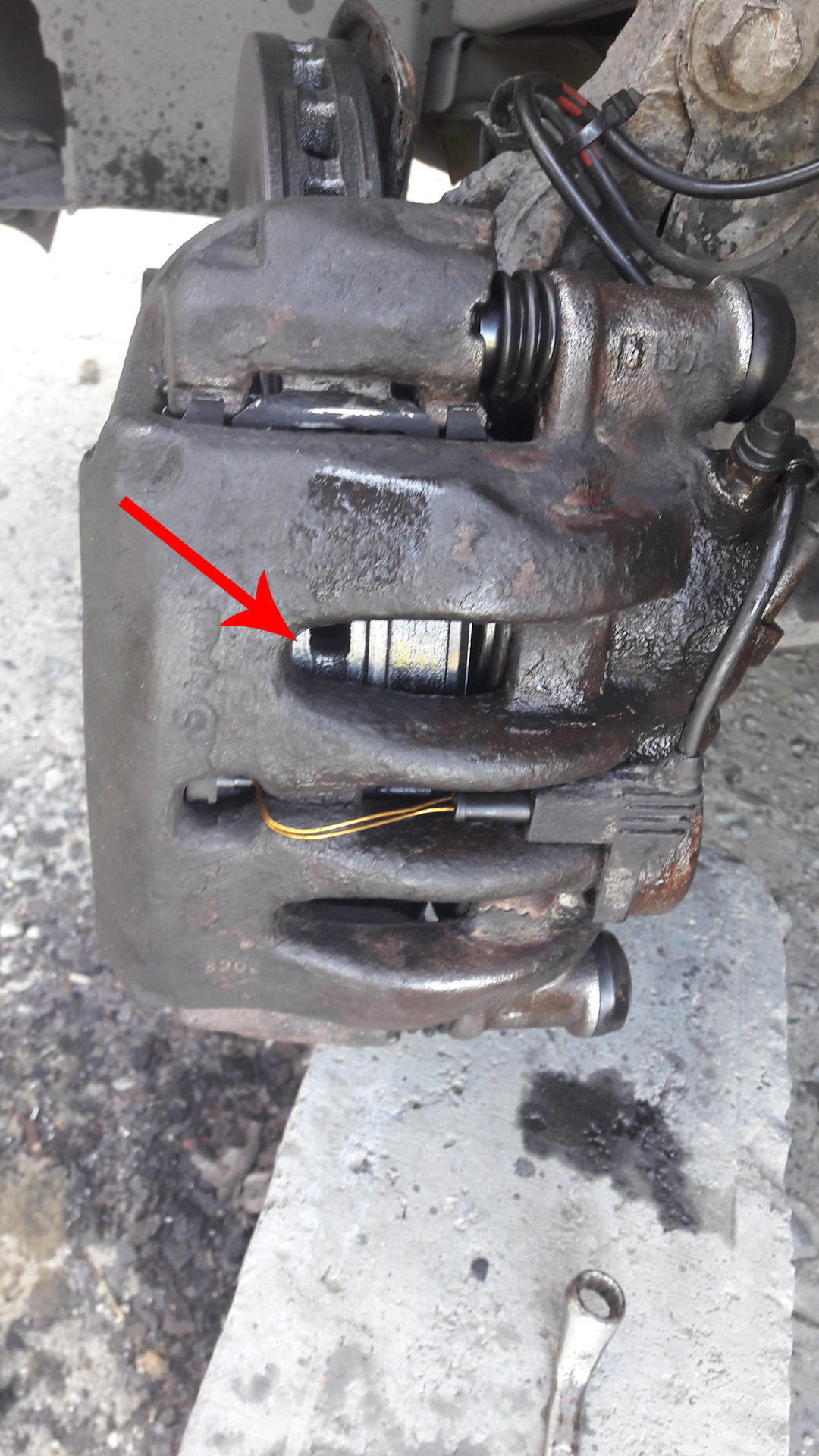
4. If visually the brake disc seems to be less than 25 mm, then the brake disc should be removed. Replacing brake discs Mercedes Vito is described in this article .
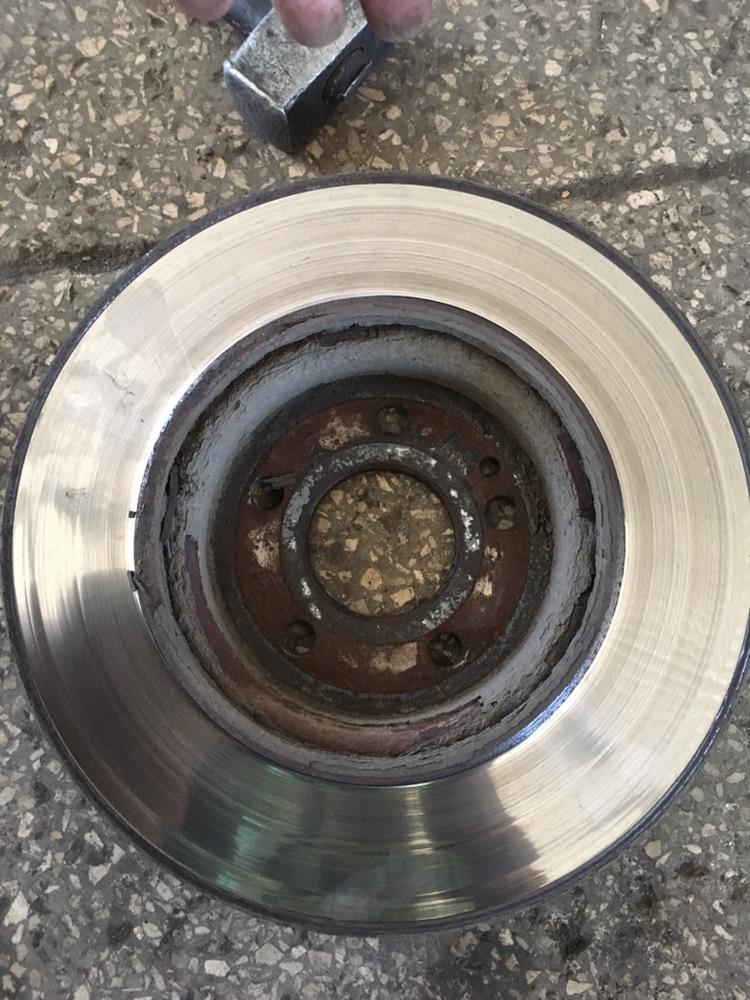
Removed brake disc Mercedes Vito
5. Measure the brake disc thickness. The thickness of the new disc is 28 mm, the minimum allowable disc thickness is 25 mm. If necessary, replace the brake disc. Replacing brake discs Mercedes Vito is described in this article .
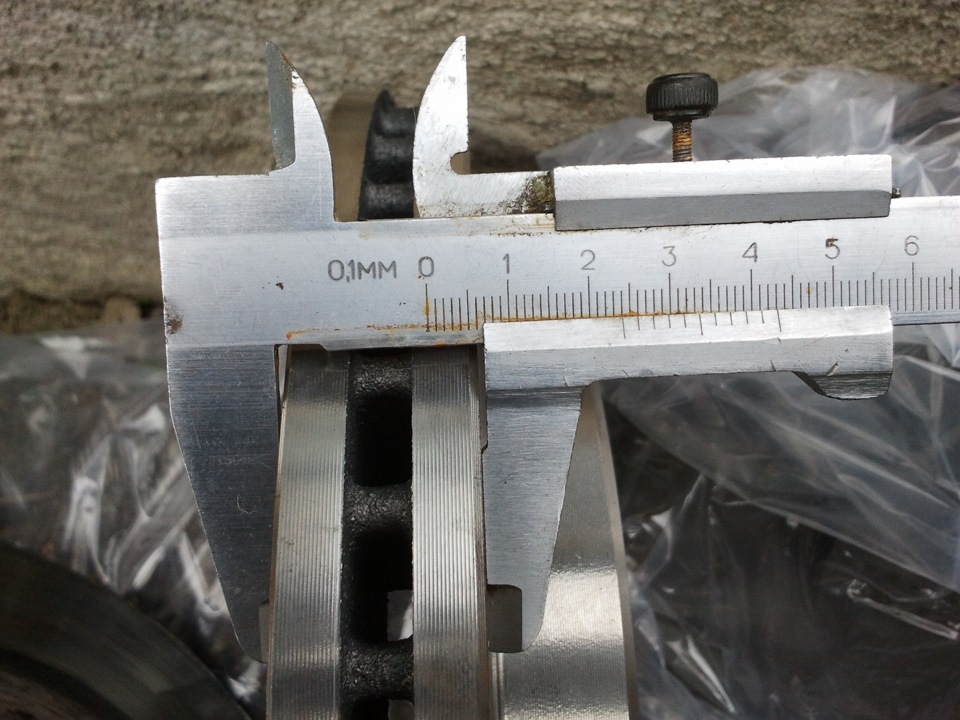
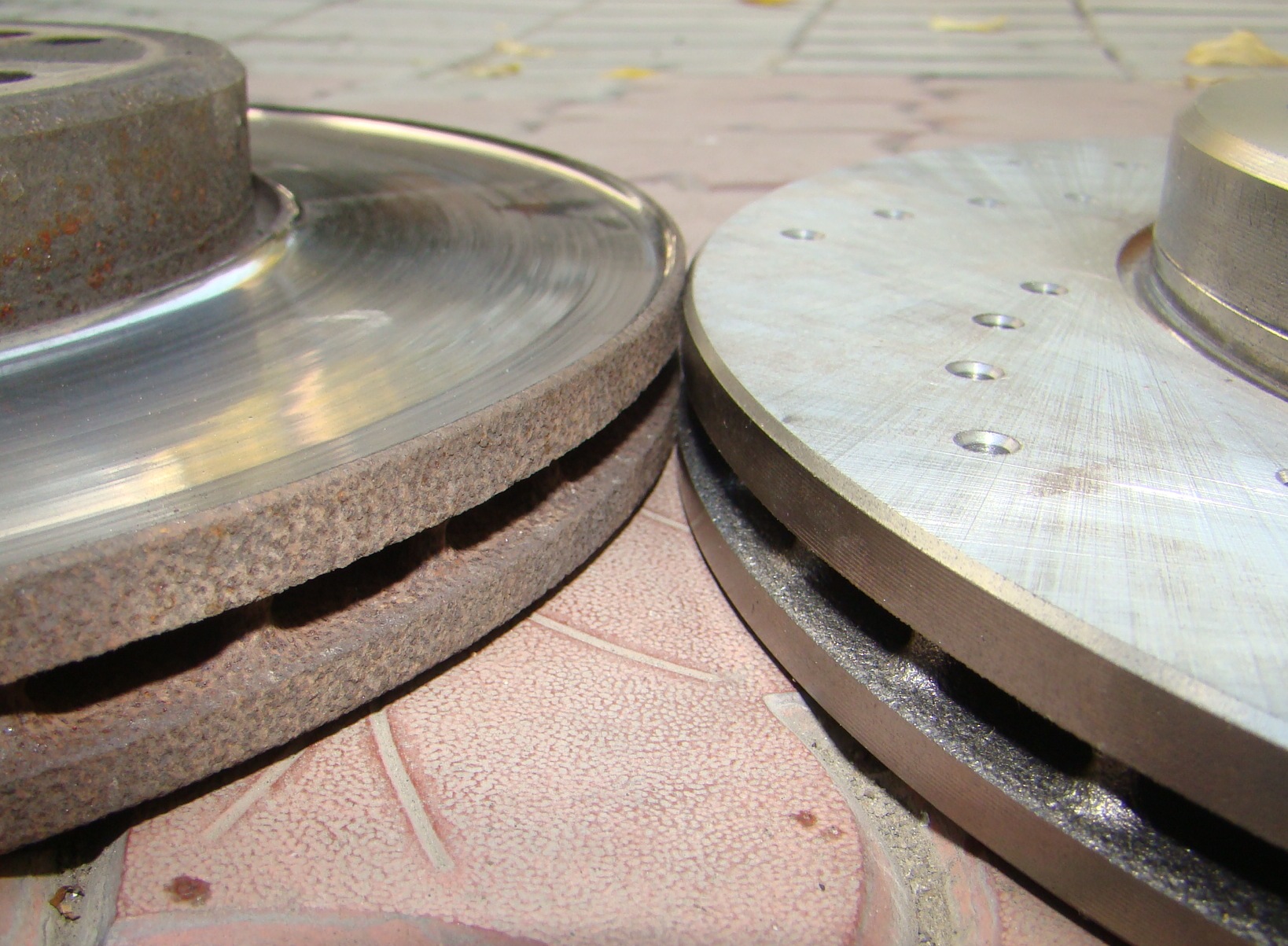
Old and new brake disc
Note:
The disc must be replaced without fail in the presence of through cracks and burrs with a depth of more than 0.5 mm.
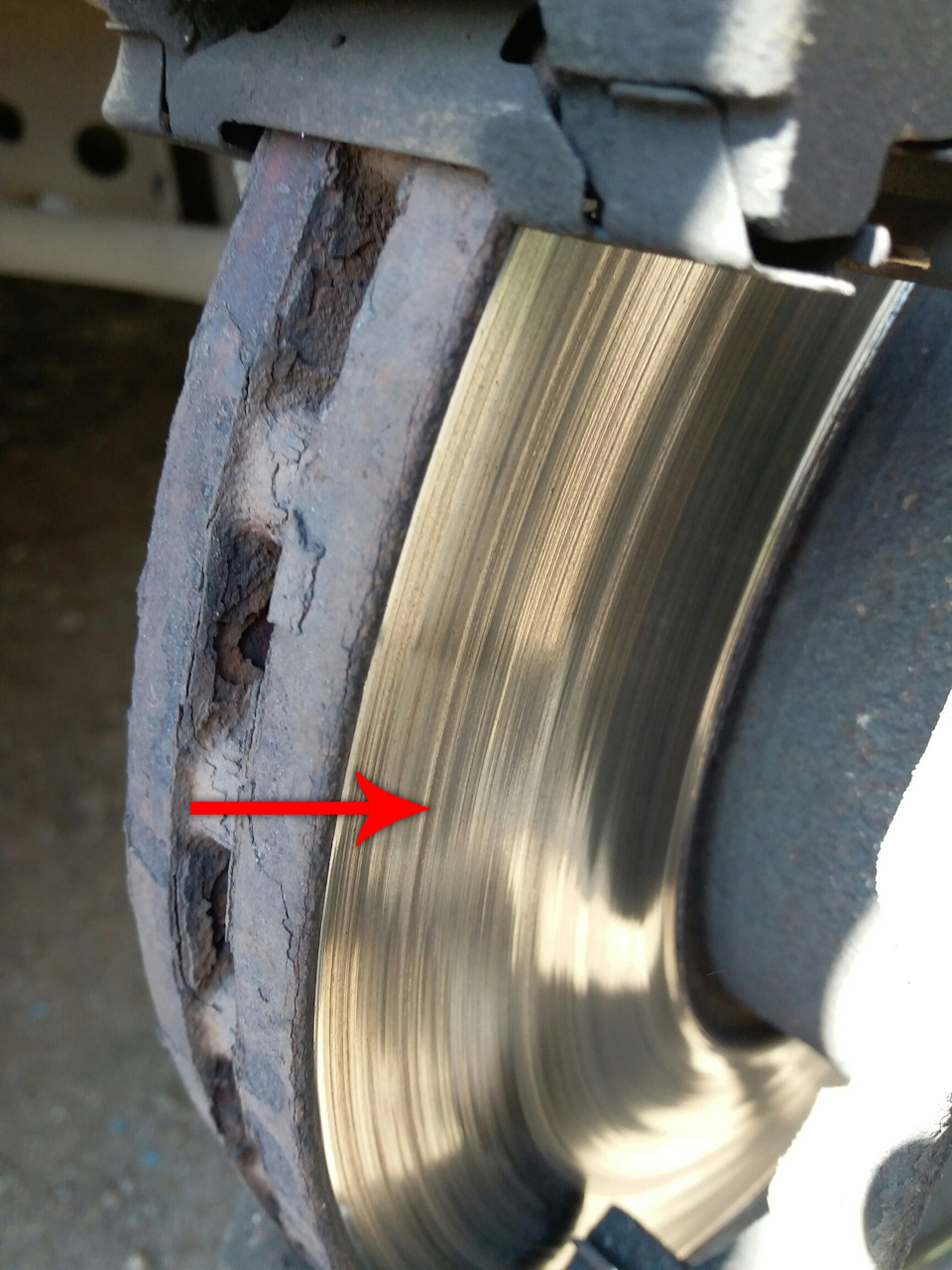
6. Inspect the disc cooling air passages. If cracks are found in the jumpers, the disk must be replaced.
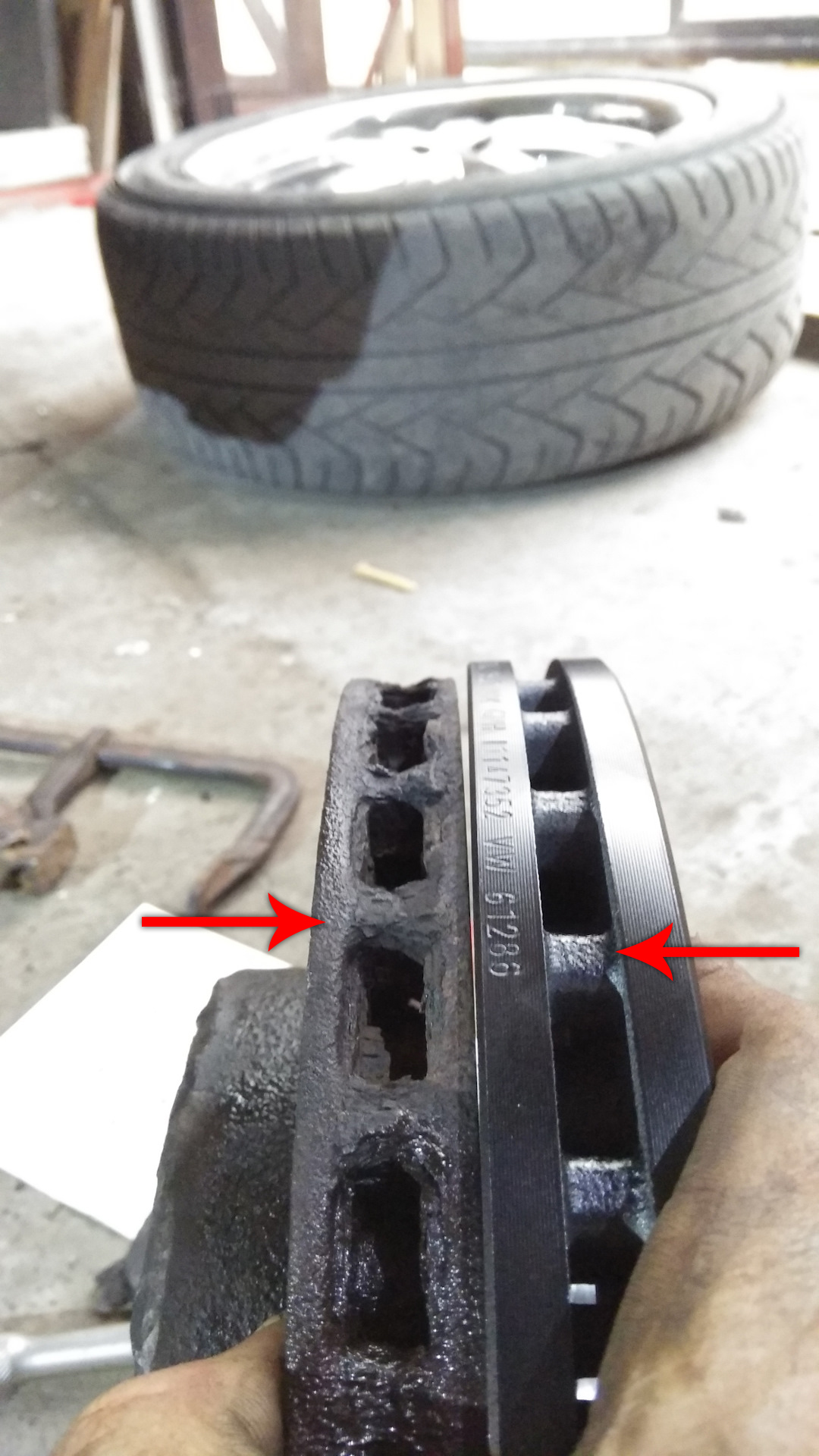
7. Install all removed parts in the reverse order of removal.
Checking the rear brake disc:
1. Brake the vehicle with the parking brake and install wheel chocks (“boots”) under the front wheels.
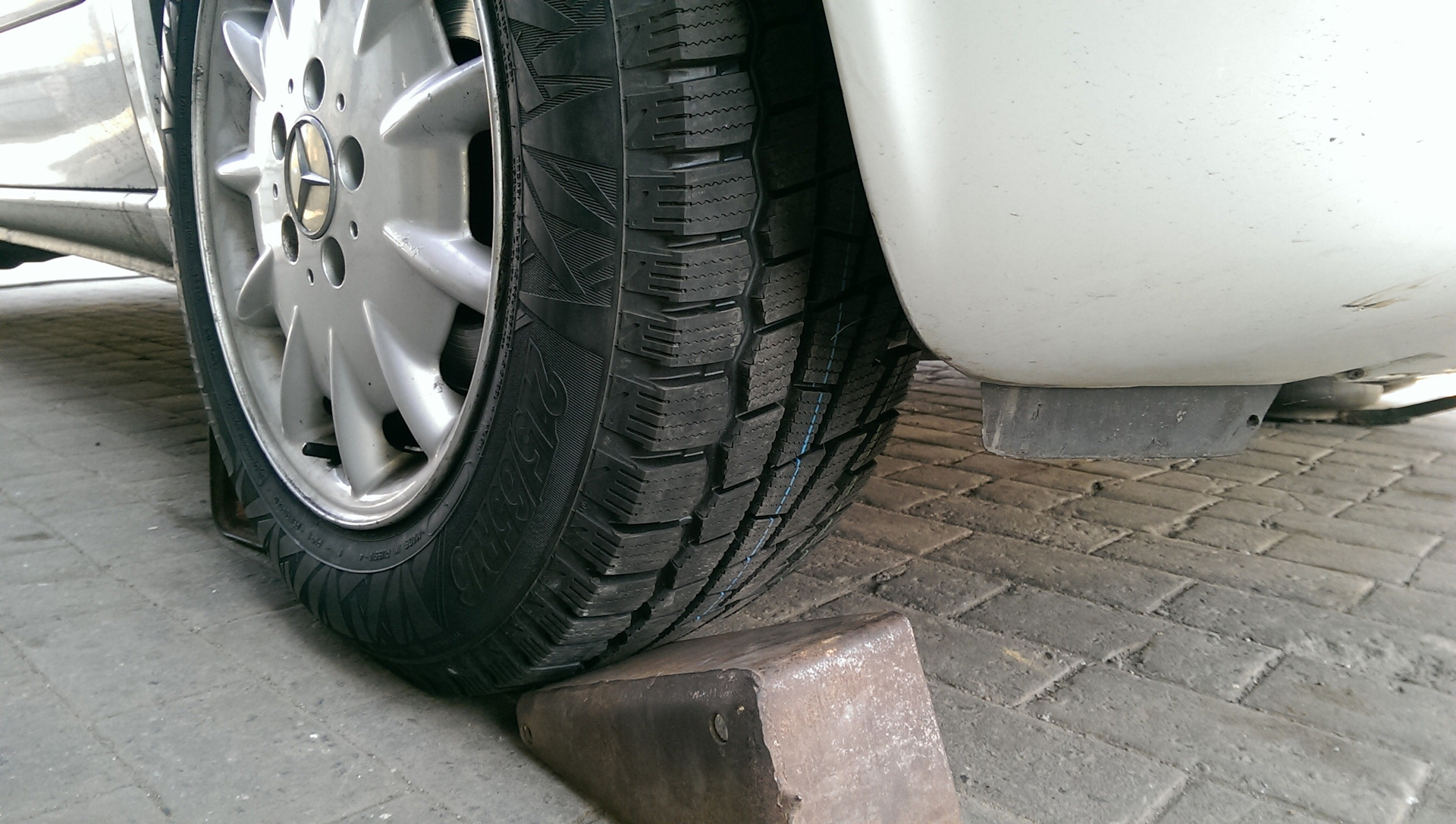
2. Loosen the wheel nuts, jack up the rear of the vehicle, place the vehicle on jack stands, and remove the wheel.

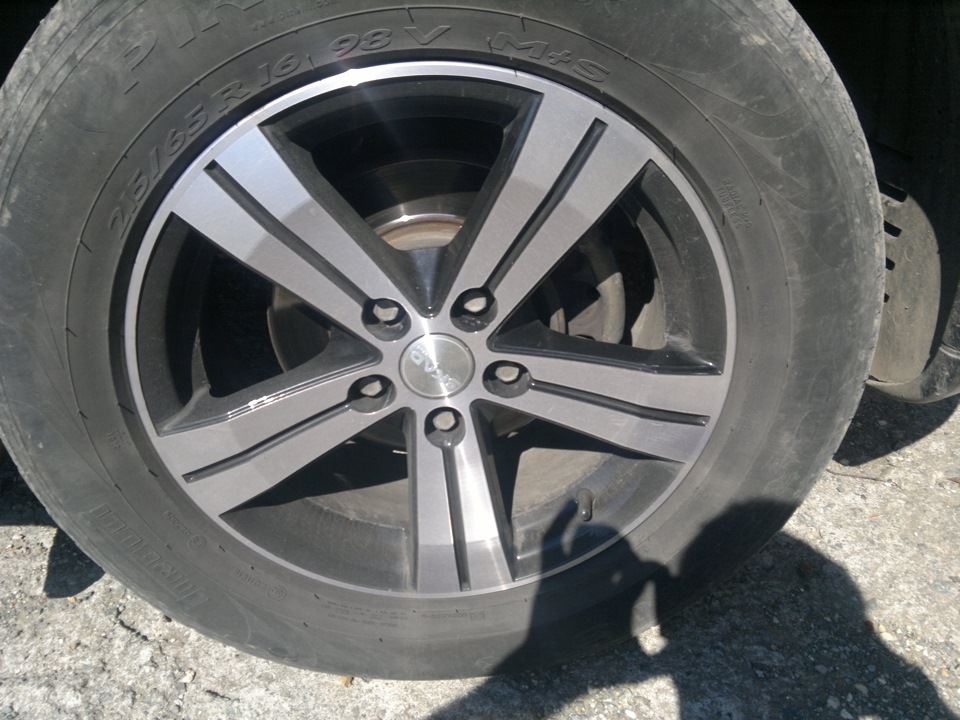
WARNING:
Loosen and tighten the wheel nuts only with the vehicle on the ground.
3. Remove the rear brake disc as described in this article .
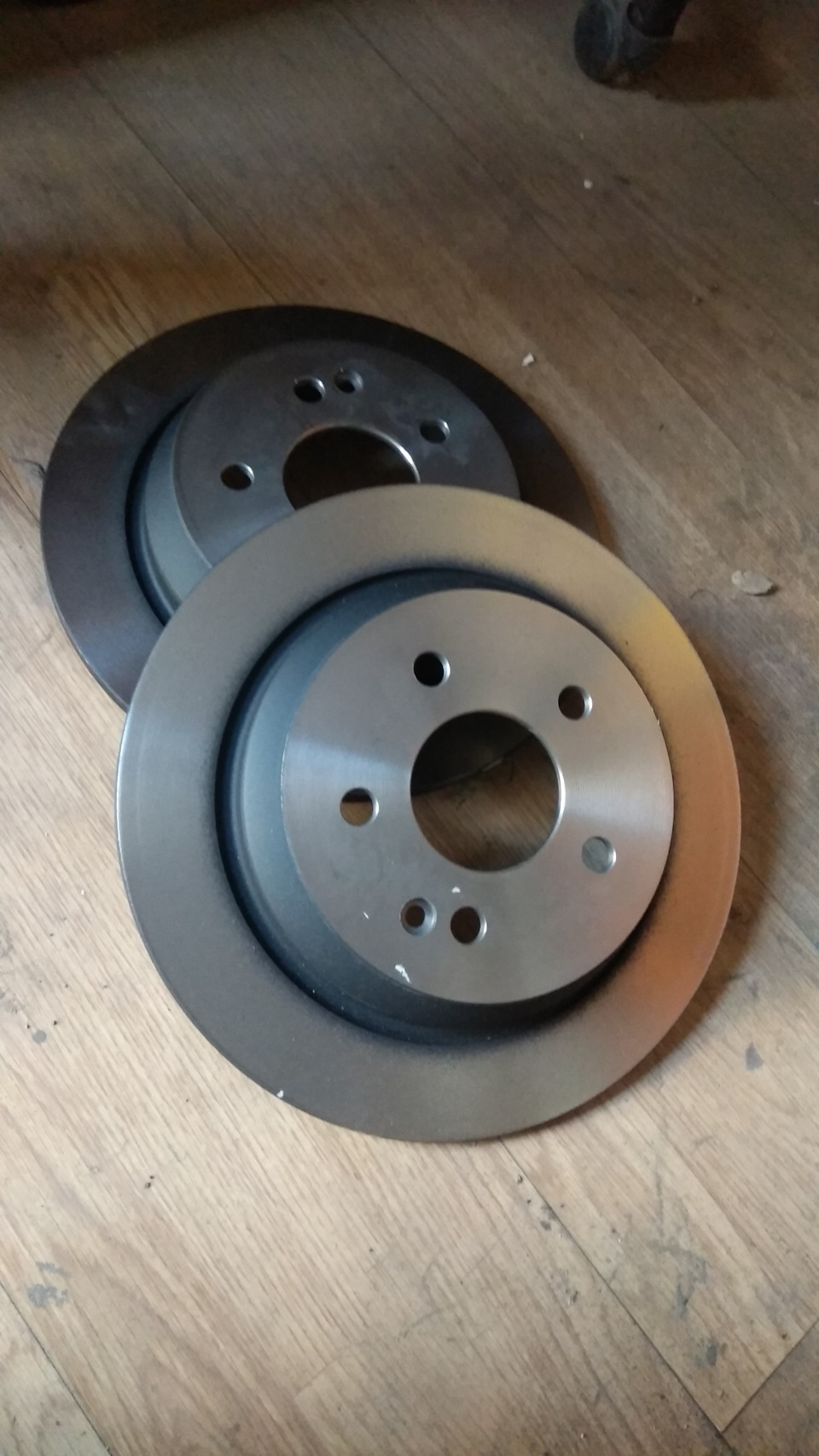
4. Check the condition of the brake disc. The thickness of the new brake disc is 10 mm. The minimum thickness of the brake disc must be at least 8 mm. If less, then the disc should be replaced. Replacing the rear brake disc is described in this article .
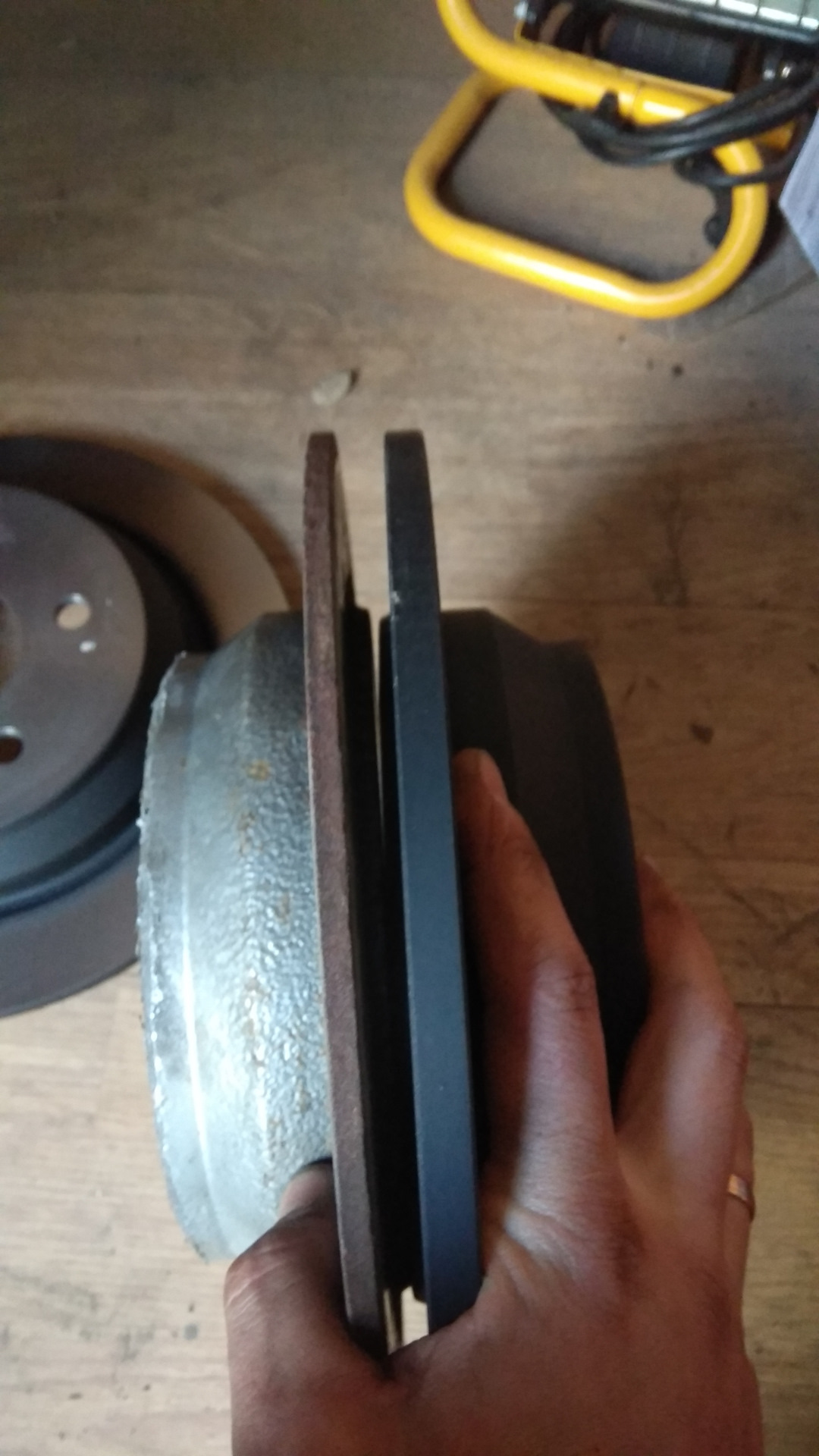
Thickness of old and new brake disc
5. Install all removed parts in the reverse order of removal.
WARNING:
After completing the checks, press the brake pedal to the stop several times. This is necessary in order to select the gaps in the brake mechanism that appeared after the pistons were pressed into the cylinders.
Source: http://carpedia.club/
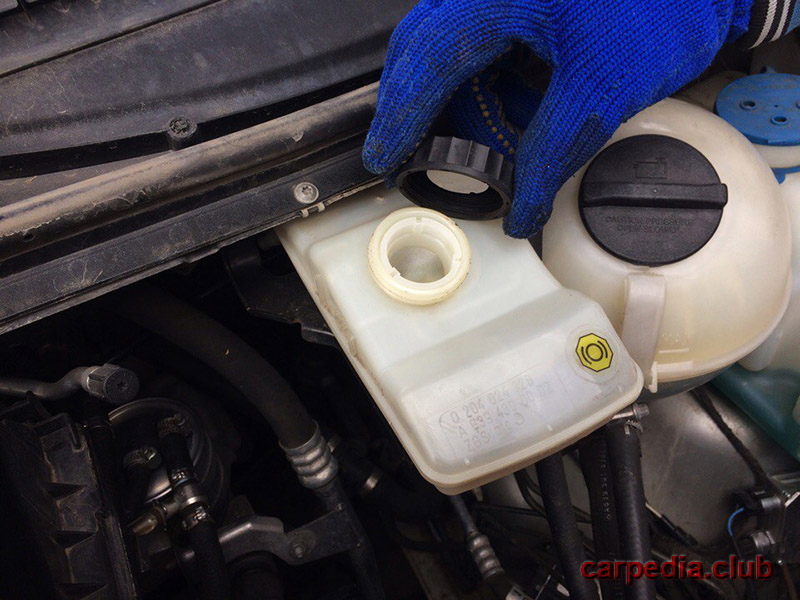
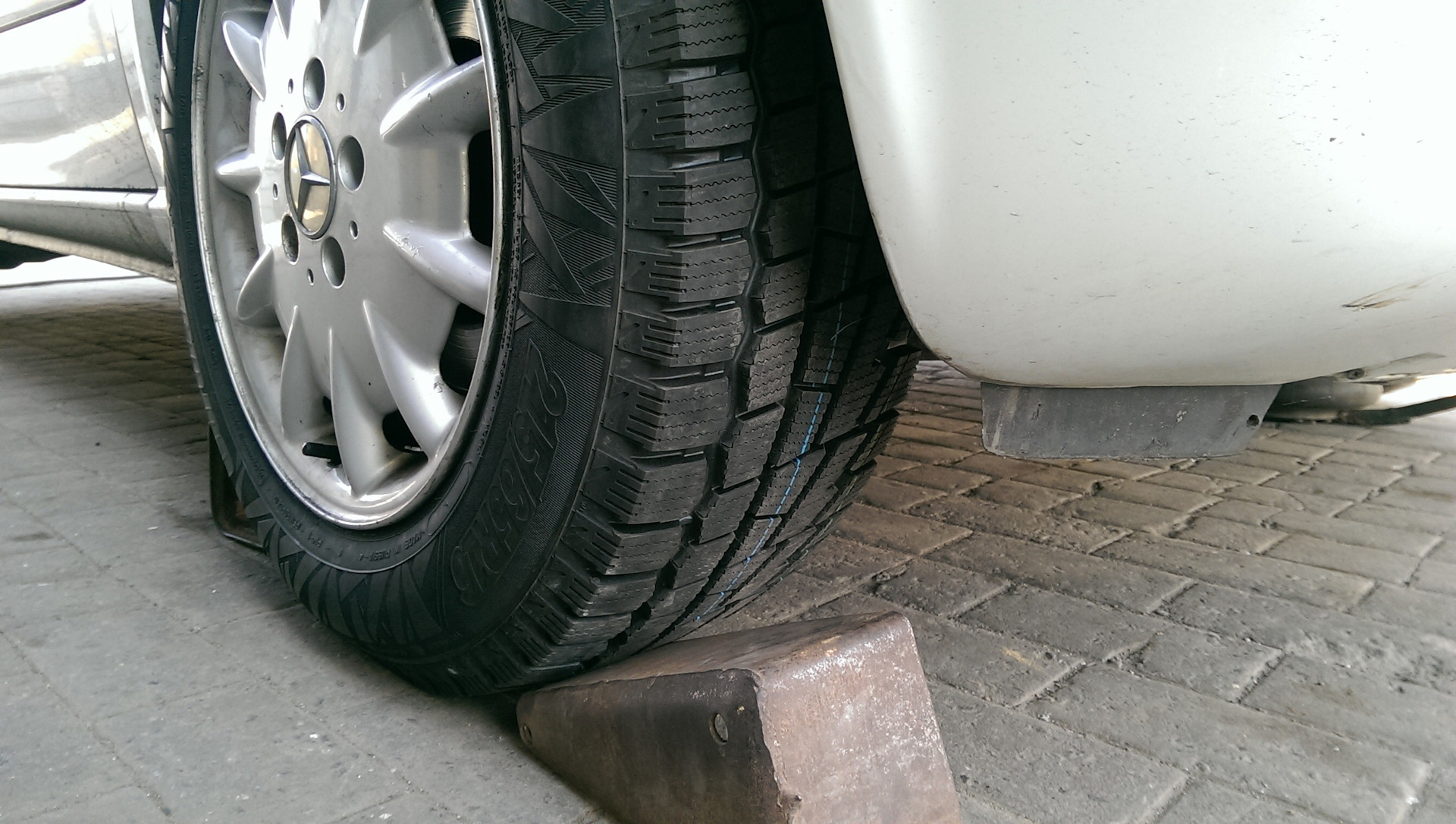
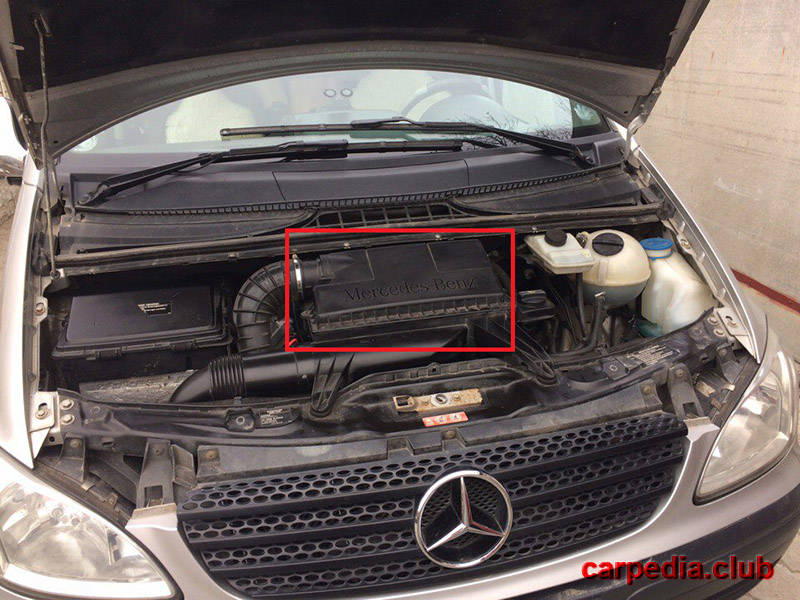
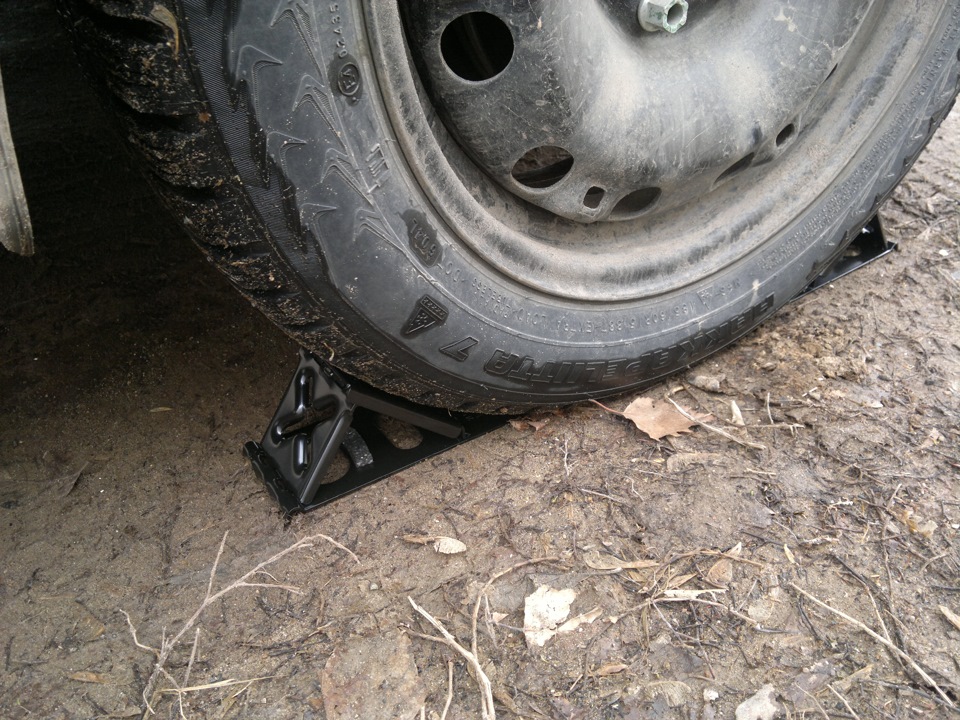
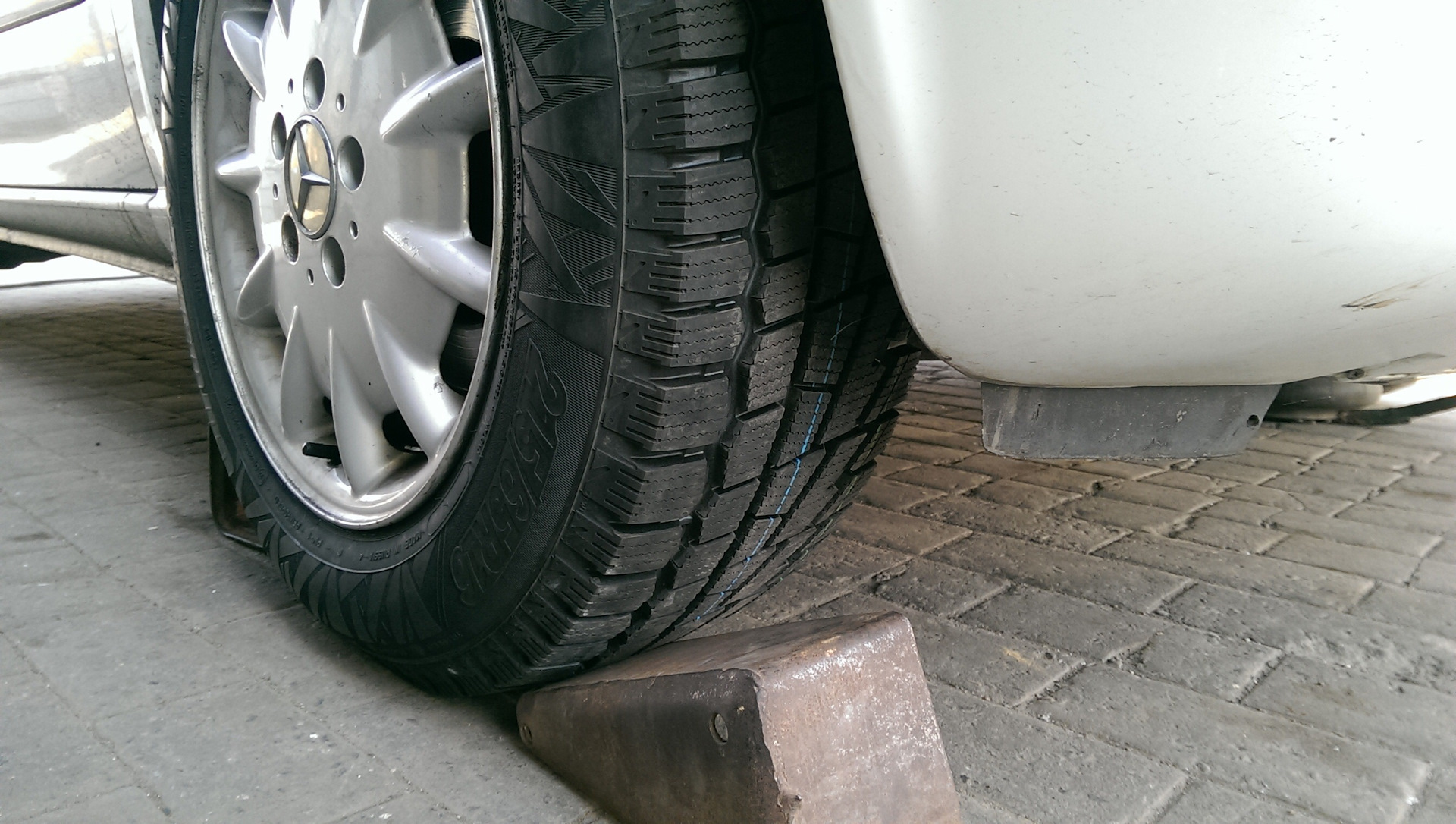
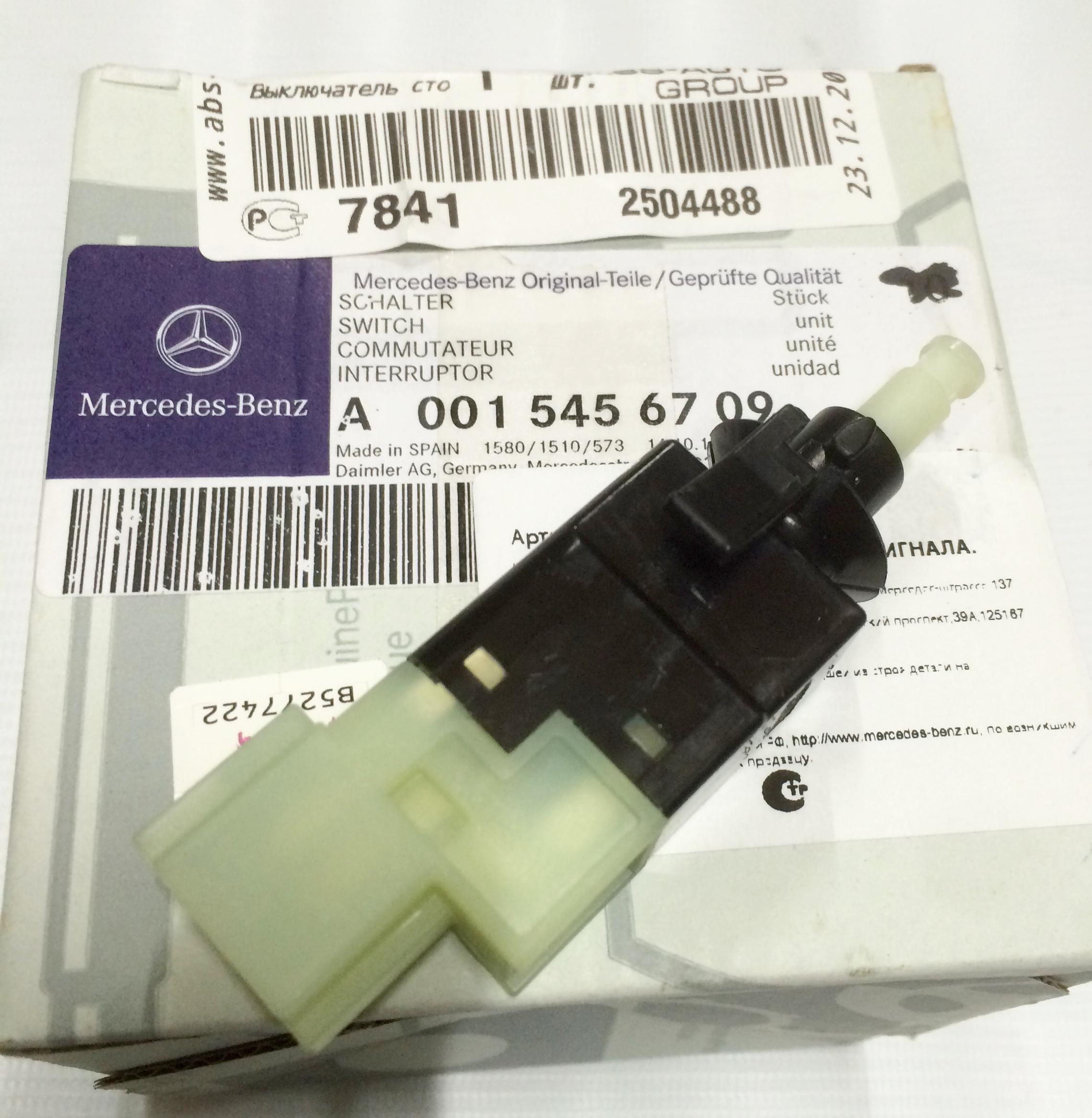
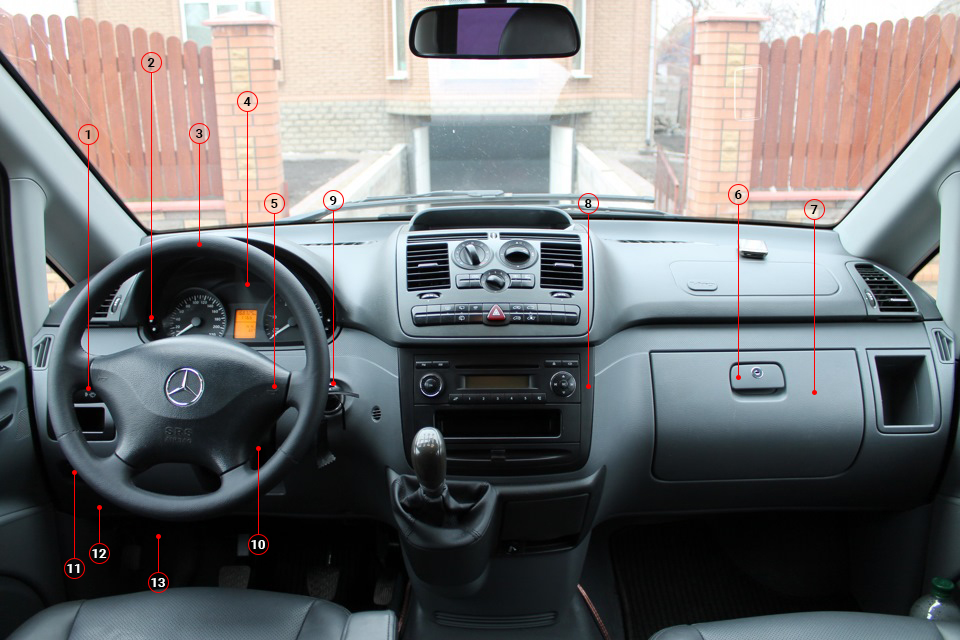
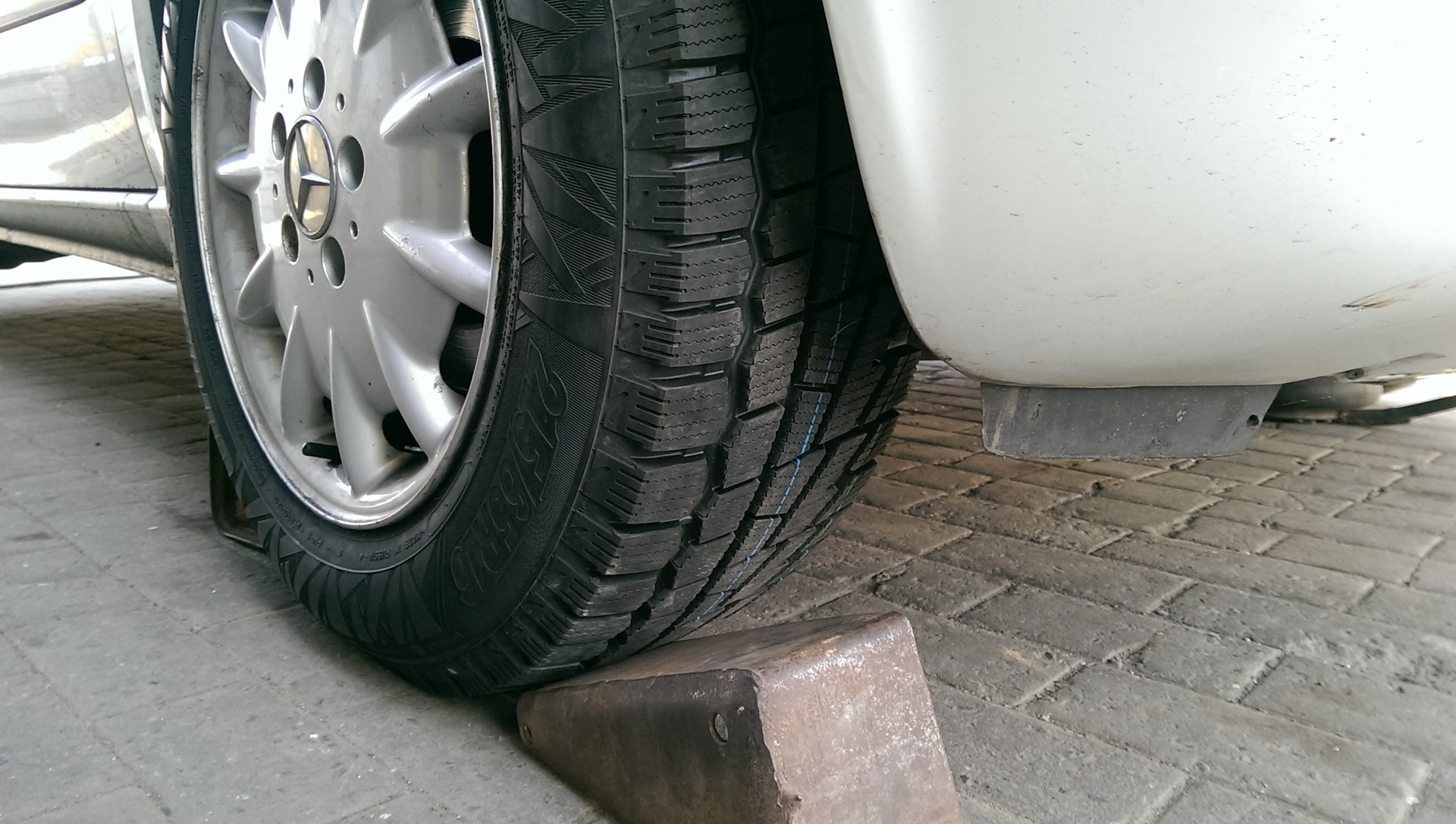
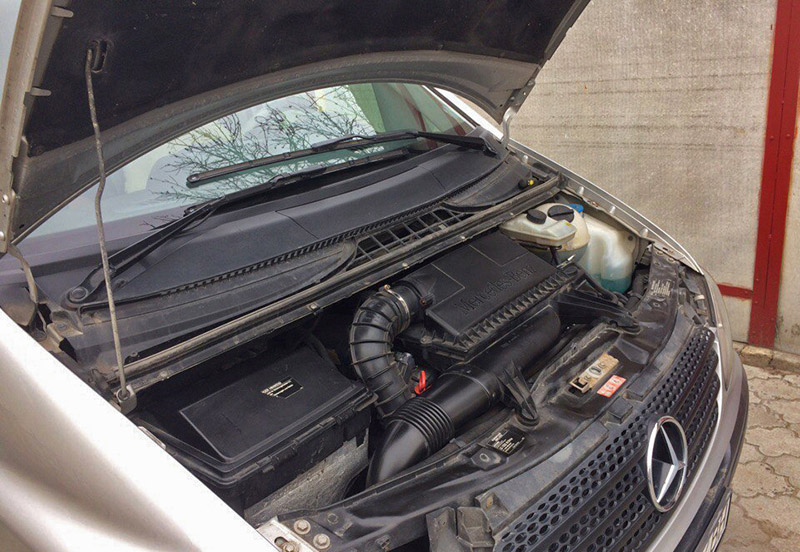
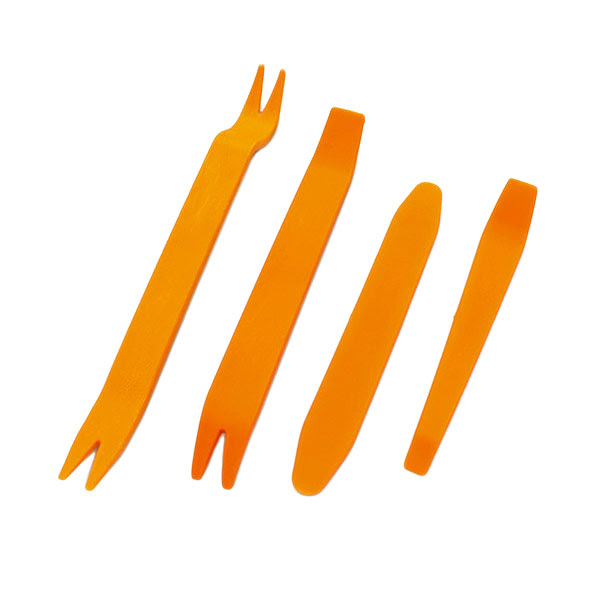
![W638 [1996 - 2003]](/uploads/Mercedes-Benz_Vito_I_W638_1996_-_2003_.jpg)
![W639 [2003 - 2010]](/uploads/Mercedes-Benz_Vito_2013.jpg)
